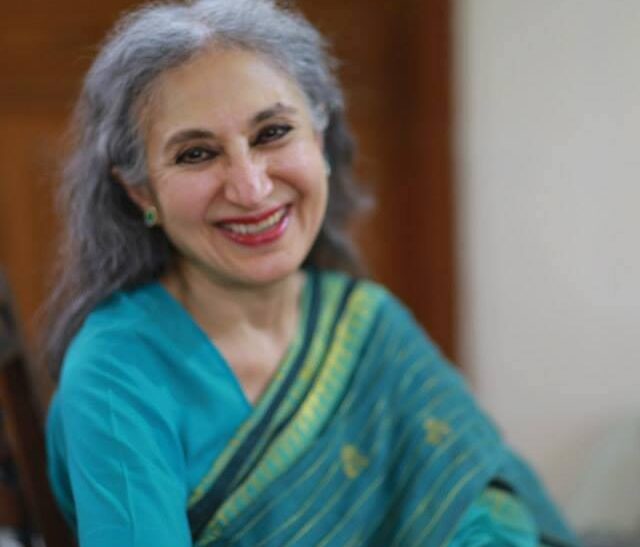Publishing luminary Jehanara Wasi boasts a multifaceted career spanning over five decades, encompassing roles as an editor, writer, journalist, researcher, literary agent, and broadcaster. Her expertise has been honed through collaborations with prestigious Indian and international publishers, including but not limited to Oxford University Press, Macmillan Publishers, Vikas Publishing House, Tata McGraw-Hill, Rupa Publications, Heritage Publishers, Pearson, Konark Publishers, India Research Press, Random House India, Bibliophile South Asia, as well as esteemed UN entities such as UNDP, UNESCO, UNIDO, UNICEF, and UNFPA.
Moreover, she has lent her talents to numerous Indian governmental bodies, such as the National Museum, NCERT, ICCR & IGNOU, and has been involved with educational and cultural institutions and think tanks, including the British Council, US Educational Foundation for India, US Information Services, Indian Association for Canadian Studies, Delhi Policy Group, Liberty Institute, Third World Academy, Sulabh International, Rajiv Gandhi Institute for Contemporary Studies, Osho World Foundation, National Literacy Mission, The Energy and Resources Institute, International Labour Organisation, Association of Indian Diplomats, Council for Social Development, India Research Press, Indian Council for South Asian Cooperation, India International Centre, Business World, Friedrich Ebert Foundation, and Bharatiya Vidya Bhavan.
Furthermore, Jehanara has made significant contributions as a literary columnist to esteemed media outlets such as The Economic Times, The Times of India, The Fountainhead, The Sunday Observer, The Hindustan Times, Indian Horizons, The Education Quarterly, Saturday Times, The Statesman, Travel Times, Vidura, Design, Destination Traveller, Indrama, Discover India, Swagat, City, Scan, The Patriot, Link, The Financial Express, and First City. Her editorial prowess extends to overseeing more than 150 literary and educational projects for national and international publishers.
Her academic background includes a graduate degree in History from the University of Delhi, followed by postgraduate studies at Oxford University. In a revealing conversation with The Interview World, Jehanara delves into the intricacies of the publishing industry, offering insights gleaned from her extensive experience.
Q: Could you outline the key trends shaping the evolution of the Indian publishing industry?
A: Amidst the trials brought forth by the pandemic, the Indian publishing industry remains resilient, poised to embark on a journey of continuous evolution. While there might be a momentary pause, the enduring allure of books ensures a steady demand. The industry’s adaptability and innovation shine through, promising to navigate through turbulent times with resilience and determination. Thus, despite the temporary setbacks, the literary world in India stands ready to embrace the challenges and emerge stronger.
Q: How does the Indian publishing industry differ from its international counterparts?
A: The international publishing industry showcases a rich tapestry of English-language books, embodying its expansive scope and cultural diversity. However, India’s literary landscape stands as a testament to its linguistic plurality, with numerous languages contributing to a flourishing array of published works. This linguistic richness ensures that the volume of publications in India transcends the norm, reflecting the nation’s vibrant literary tradition and the multiplicity of voices that echo across its vast expanse.
Q: How has digitization influenced the publishing industry?
A: The onset of digitization has notably expedited the publishing process, revolutionizing the dissemination of literature. However, it has ushered in a concerning decline in the reading culture. Despite this trend, I steadfastly maintain that the tactile experience of a printed book remains irreplaceable. Neither the sleek convenience of digital discs nor the compact efficiency of Kindles can replicate the sensory richness and emotional connection fostered by the physicality of a traditional tome.
Q: How can the Indian publishing industry evolve to enhance competitiveness and adaptability in the current market landscape?
A: In the realm of Indian publishing, an imperative shift beckons: prioritizing quality over sheer quantity. Within the rich tapestry of readership, diverse categories await fulfillment, necessitating a nuanced approach. Thus, a meticulous selection process must ensue, ensuring that titles across various disciplines resonate with discerning audiences. By embracing this ethos, we not only elevate the literary landscape but also honor the multifaceted interests of readers, fostering a culture where each publication embodies excellence and relevance.








